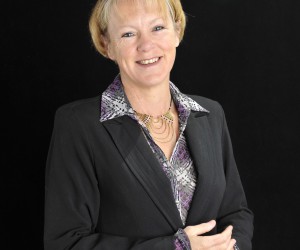After many years of operational and managerial roles in the mining sector, this is the conclusion drawn by environmental scientist Julie Stacey, now an independent consultant, coach, lecturer and associate of Wits University’s Centre for Sustainability in Mining and Industry (CSMI).
With initial qualifications involving geology, geography and ecology, Stacey now shares her insights with business leaders in a range of sectors, highlighting the importance of their personal values in the way they run corporations.
Starting her career with a technical focus on earth- and life-sciences, she worked for the Chamber of Mines before becoming Sustainable Development Operations Manager for Anglo American plc.
Some 25 years on, she has represented the industry at policy liaison and negotiating forums such as the Southern African Development Community and the United Nations. Other roles included the chairmanship of the Sustainable Development Forum of the Institute of Directors in Southern Africa, where she was also a Council member, and serving on two task teams of the King III Code for Corporate Governance revision process.
“The more I worked in the field,” said Stacey, “the more I realised that – while science and technology are crucial – the problems related to sustainability are caused by the criteria we use to make decisions and our choices and behaviour as individuals.”
Over time, then, her interest has moved more to the “people side” of the sustainability equation to explore personal values and assumptions, and how these find their way (or not) into corporate decisions and consumer choices.
Having evolved a widely multi-disciplinary scope to her work, she has commenced a doctorate in sociology, examining whether executive directors of publicly listed companies feel that their personal values can be brought to bear in their business decisions.
“Past research in which I was involved has shown that only 14% of directors agreed with the statement: ‘Board decisions are consistent with my personal values’,” she said. “This – and other global research - suggested to me that many company decisions are not based on personal values, but rather those of the prevailing consumptive market, which would render the concept of corporate sustainable development a fallacy.”
In a study she conducted with the Institute of Directors, personal issues were shown to present the biggest barriers to courageous leadership – taking a business viewpoint based on your personal convictions. “The three top issues that directors reported to be preventing them from acting courageously were the need to maintain the image of being a director, fear of being the lone voice, and fear of appearing weak,” said Stacey. “These are all issues of self-concept. Directors are human beings, first and foremost.”
At the same time, directors reported that corporate culture is a significant barrier to courageous leadership.
“But who sets the corporate culture if not the directors themselves?” she asked. “Many don’t seem to realise that they are both responsible for and capable of changing that culture.”
This is not to deny that many business leaders have good intentions. Directors largely understand what is required to deliver courageous leadership for sustainable development, and have admirable intentions in this regard. However, despite this common understanding, it was evident from the research that corporate actions are not as courageous as their leaders’ intent.
This focus has led her to develop courses that encourage participants to explore their personal choices, their values, and their own development. In addition to the Masters degree courses in sustainable development that she presents for the CSMI to Wits engineering students, she also offers an elective in ‘Spirited Leadership’ in the Wits Business School’s MBA programme, as an Associate of The Jesuit institute of South Africa. This programme is also offered in-house to corporations. A three day executive programme on sustainability and leadership within mining and industry is planned for the 2014 CSMI calendar.
“By approaching the field of sustainable development from a personal values point of view, it can fundamentally change people’s perspective on business and the way they connect their personal lives with their work decisions,” she said.
This shines through in the enthusiastic feedback from programme participants. In the words of one , “At the very least you’ve opened my eyes: at most you’ve changed my life forever.” Both students and corporate who participate agree: “It is one of the few courses where a life skill has been imparted.”
According to Stacey, the sustainability approach really comes down to understanding that financial performance is only one of a range of issues that underpin the viability of a business. At a personal level, financial wellbeing only delivers ‘happiness’ up to a point.
“If you adopt the Five Capitals model – which differentiates human, social, natural, manufactured and economic capital – you can identify more clearly the variety of risks and opportunities that could either prevent your business from continuing as a going concern, or enhance its capacity” she said. “For individuals, understanding that money is merely a means of exchange, rather than being the sole purpose of one’s life, creates opportunities to pursue genuine meaning.”
She emphasised that the criteria for business success are changing, as is the concept of business value and acceptable practice; where profit is the driving motive, sustainable development is effectively impossible to achieve. “We need to understand for ourselves what is truly important, in the longer term”.
“The CSMI is at the heart of working out how to negotiate the space between all these apparently conflicting priorities – be it safety, environment, production or profits,” she said. “In this sense, the CSMI’s value goes far beyond its depth of skill and expertise in specialised fields. The really exciting strides are made when we get together and explore how all our specialised skills fit together, creating the interconnectedness and integration required to solve bigger problems.”
Stacey’s purpose is to facilitate the deliberate creation of a fundamentally different future, which she also does by business coaching for sustainable wellbeing, facilitating strategy and scenarios, and helping corporations with complex decision-making. She coaches individuals as well, and writes on the link between self-awareness and sustainable development.
“Sustainable wellbeing affects everything in life,” she said, “and everything in our business and our personal lives can benefit from the insights that flow from this.”






